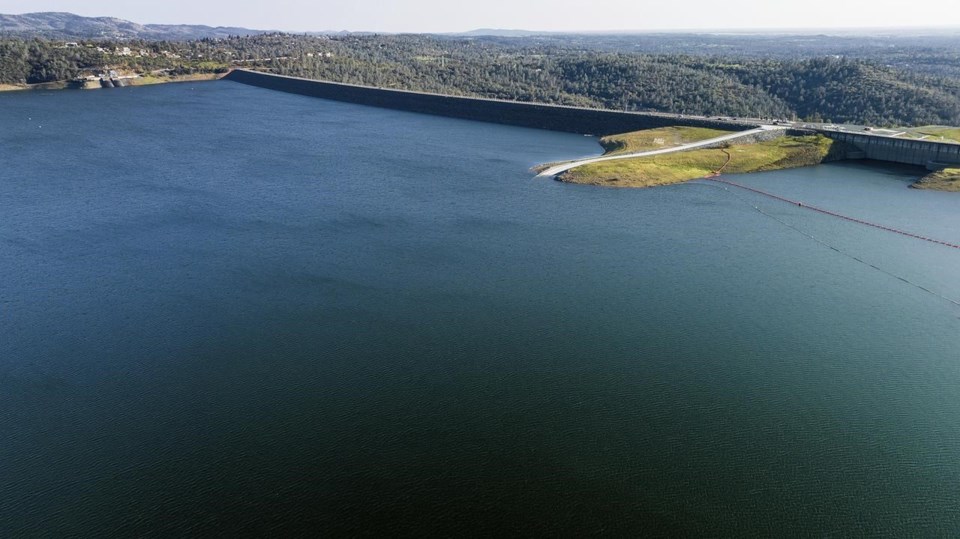SACRAMENTO, Calif. (AP) — California will provide 100% of the water requested by cities and farms for the first time in years thanks to winter storms that filled reservoirs and runoff from a record snowpack, regulators announced Thursday.
The State Water Project will provide full allocations to 29 water agencies supplying about 27 million customers and 750,000 acres of farmland, the Department of Water Resources said.
As late as March, the agency was only expecting to provide 75% of requested water supplies.
The last time the state agency fully met water requests was in 2006.
Meanwhile, the federal Bureau of Reclamation announced it was increasing water allocations for the Central Valley Project to 100% for the first time since 2017.
The move was cheered by contractors who supply the federal water to the state's agricultural heartland. It will provide much-needed water to communities, farms and families in the San Joaquin Valley, said a statement from Jose Gutierrez, interim general manager of Westlands Water District.
"Following two years of 0% allocations, this water supply will assist growers in Westlands with putting the land to work to grow the food that feeds the world,” he said.
Both the state and federal governments control networks of reservoirs and canals that supply water across California.
Three years of drought had pinched off supplies drastically in the nation’s most populous state. Late last year, nearly all of California was in drought, including at extreme and exceptional levels. , farmers fallowed fields, and cities restricted
The water picture changed dramatically starting in December, when the first of a dozen “ ” hit, causing widespread flooding and damaging homes and infrastructure, and dumping as many as 700 inches (17.8 meters) of snow in the Sierra Nevada mountains.
The statewide reservoir storage on Thursday was at 105% of the average for the date, the Department of Water Resources said.
The runoff from the melting snow will supply additional water that the state agency said it is working to capture.
As of this week, more than 65% of California no longer had drought conditions, according to the U.S. Drought Monitor.
However, the Department of Water Resources urged people to continue using water cautiously. State officials have warned that in the era of climate change, one extremely wet year could be followed by several dry years, returning the state to drought.
The state water agency noted that some northern areas of the state still have water supply issues. In addition, some areas, including the agricultural Central Valley, are still recovering after years of pumping that has depleted underground water.
“Millions of Californians rely on groundwater supplies as a sole source of water," the agency warned.
“The Colorado River Basin, which is a critical water supply source for Southern California, is still in the midst of a 23-year drought,” the agency added. “Californians should continue to use water wisely to help the state adapt to a hotter, drier future.”
The Associated Press




